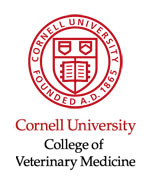"'Counting Sheep': The Comparative Advantages
of Wildlife and Livestock –
A Community Perspective"
Michael J. Murphree
Community wildlife management programmes across Africa have
strived to encourage wildlife management over livestock production
by small scale rural farmers. However, despite data that
indicates a higher return per sq km and improved habitat
management in areas under wildlife management systems, small
scale farmers in communal situations will in almost all cases
favour livestock over wildlife.
Why?
There are several factors that determine the comparative
advantages of livestock and wildlife such as tenure, policy/legislation
and the fugitive nature of the wildlife resource. These factors
have traditionally worked against wildlife as an attractive
and viable land use option by small scale farmers in communal
tenure regimes. However, wildlife has advantages of its own
such as resistance to drought and disease, cultural and traditional
values, high economic returns (in certain circumstances)
and is most often the “meat”
of preference. Where are we in this balancing act of choices?
With over twenty years of community wildlife management experience
in Southern Africa what are the current trends? Will community
wildlife management programmes even out the advantages and
disadvantages? Does Southern Africa have lessons to learn
from other parts of Africa? This paper will examine these
issues and questions from the perspective of a small scale
communal farmer.
|
|











